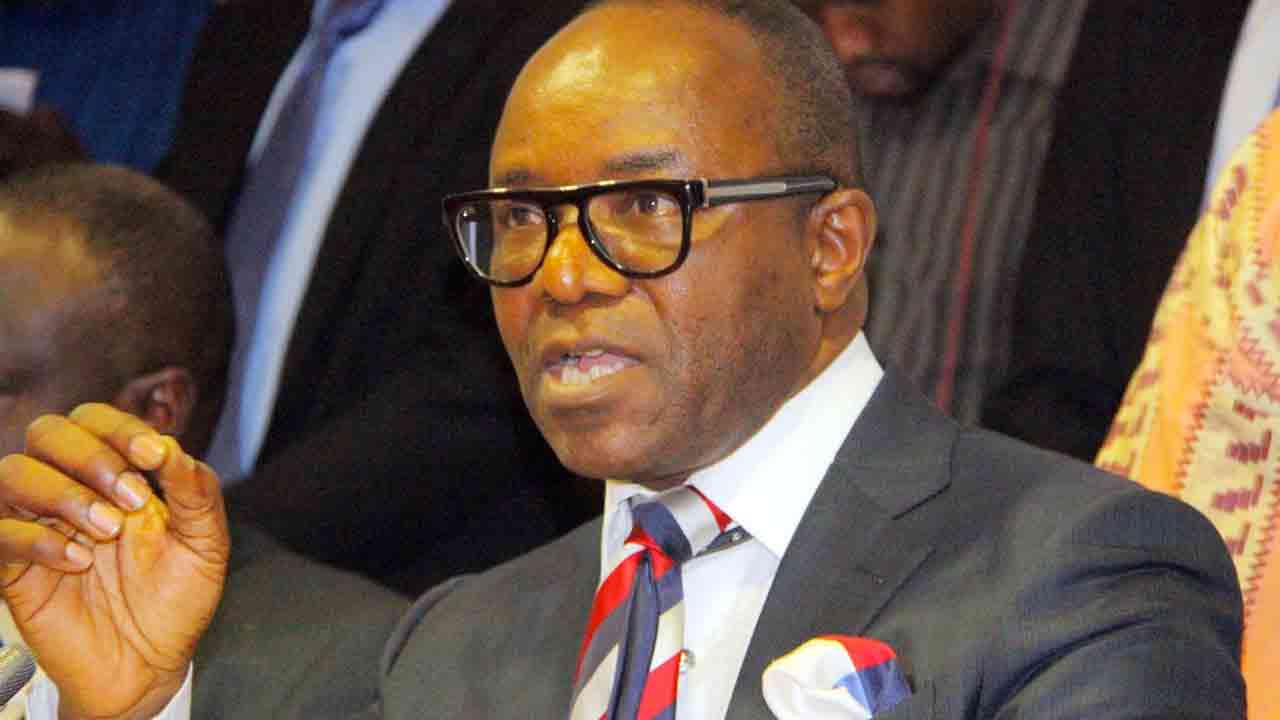- We Must Produce Enough Fuel by 2019 or I’ll Resign
The Minister of State for Petroleum Resources, Dr. Ibe Kachikwu, has vowed to resign if the country fails to attain self-sufficiency in the refining of petroleum products by 2019.
Kachikwu, who spoke as a guest on BBC Hard Talk in London on Monday, also stated that he recently signed an agreement with the international oil giant, Agip, for the firm to build a refinery in Nigeria.
When asked to state the year that Nigeria would be self-sufficient in refining petroleum products, Kachikwu replied, “I have said 2019, and that is the target that I gave.”
On whether he would leave office if he failed to achieve the target, the minister replied, “Yes, of course. That is the reason why you are in government.”
Kachikwu was also told by his interviewer that the industry was totally dysfunctional considering the fact that Nigeria exports crude oil and imports refined products despite having refineries, but he stated that efforts were being made to revive obsolete facilities in the sector.
Kachikwu said, “Let me say this; yes it is wrong, we ought to process rather than ship out crude. But look at all the efforts I have made in the last few months, including working with investors to begin to reshape the refineries that were comatose for many years.
“The President is there for two years and those refineries were down before he came. Since coming, we’ve been able to get them back to produce seven million litres versus zero. That’s not the 90 per cent template. We’re now refurbishing the refineries and I’ve just signed an agreement with Agip to build a new refinery in Nigeria.”
He added, “I’ve delivered on everything I promised when I came into office. First, I took the NNPC and moved it into a profit-making organisation, which was the first time in history. I removed cash call deficit of over $6bn and we renegotiated it. Everything that I promised, I’ve delivered and I will deliver on the refineries; I’m committed to that.
“And I will also deliver a future for oil that makes sense for Nigeria. But bear in mind that one has been there for one and half years, while the President has been there for two years, so I can’t pretend that we are going to solve in one day all the problems that happened in Nigeria in the past.”
The minister stated that oil prices would not “hit the roof again” as was recorded in the past, adding that this had provided an opportunity for Nigeria to get serious.
Kachikwu also stated that the Central Bank of Nigeria, through its monetary policy, had been able to force a lot of citizens out of the consumption culture, a development he said had strengthened the naira considerably.
On the slump in crude oil production in Nigeria, the minister said the activities of militants in the Niger Delta led to the decline in crude output and denied claims that the Federal Government was buying off the restive youths in the region through the payment of huge sums to them.
He stated that over $40bn had been sunk in the Niger Delta in the last 10 years and that nothing tangible was on ground to show for it.

 Forex3 weeks ago
Forex3 weeks ago


 Naira2 weeks ago
Naira2 weeks ago
 Billionaire Watch2 weeks ago
Billionaire Watch2 weeks ago






 Naira3 weeks ago
Naira3 weeks ago






 Naira2 weeks ago
Naira2 weeks ago


 Naira1 week ago
Naira1 week ago




 Naira4 weeks ago
Naira4 weeks ago






 Naira1 week ago
Naira1 week ago






















